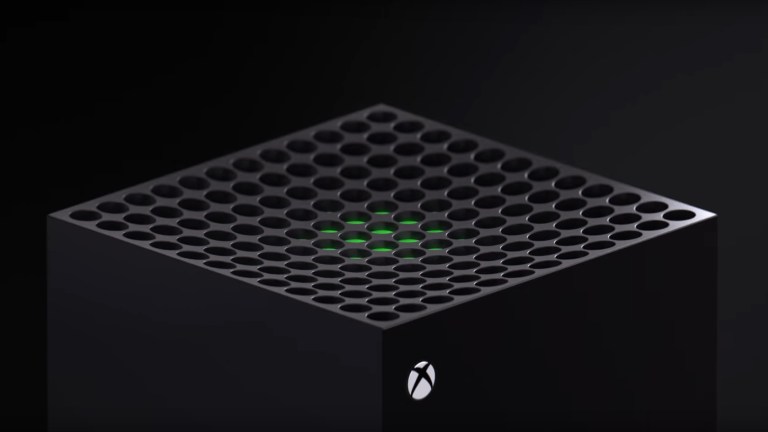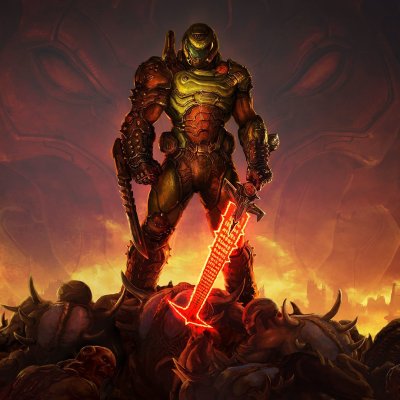Xbox Series S: 4 Theories About the Next-Gen Console
What is the Xbox Series S? Nobody seems to know for sure, but evidence points to these four likely possibilities:

Recently leaked photos of Microsoft’s next-gen controller have seemingly confirmed the existence of a device known only as the Xbox Series S.
Long-standing rumors have suggested that Microsoft intends to release another console alongside the Xbox Series X, but nobody seems to be able to agree on what, exactly, the Xbox Series S is. In lieu of confirmation, though, there’s an abundance of theories about Microsoft’s mysterious next-gen platform.
So join us as we breakdown four of the most popular Xbox Series S theories in an attempt to discover what Microsoft’s mysterious next-gen device will offer that the Xbox Series X will not.
The Xbox Series S Is a Less Powerful Version of the Xbox Series X
This particular possibility has the unique distinction of being the most logical, yet unlikely, Xbox Series S option.
Right now, the “X” and “S” branding for Xbox is relatively simple. The Xbox One X is a more powerful version of the Xbox One S (which Microsoft considers to be the standard edition of the Xbox One after it discontinued the launch model). It just makes sense that the Xbox Series S would simply be a less powerful version of the Xbox Series X.
Yet, a few pieces of that logic don’t hold up under the light of scrutiny. First off, Microsoft has been treating the Xbox Series X as their flagship next-gen console so far. It would be odd for them to promote a “pro” model of a console over what they would otherwise consider being the standard.
Second, it would be strange for Microsoft to release a console that is objectively less powerful than its next-gen companion. It would be hard to sell such a console (even if it features a reduced price point) given its potential future limitations, and Microsoft would essentially need to manufacture two different consoles featuring a variety of different hardware components. That sounds like it would be more expensive for everyone involved in the long run.
If Microsoft does go this route, the relationship between the X and S will likely mirror the launch of the Xbox 360 Core and Xbox 360 Pro. That is to say that the X will probably feature more storage space and other basic upgrades over the S model.
The Xbox Series S Is the All-Digital Version of the Xbox Series X
The first series of rumors regarding the Xbox Series S was largely based on the assumption that it would be Microsoft’s all-digital next-gen console. The idea was that by removing the disc drive, Microsoft could offer those who rarely (or never) purchased physical games a less expensive way to join gaming’s next generation. When Microsoft released the Xbox One All-Digital Edition, it seemed pretty obvious to many that the Xbox Series S would eventually offer a similar alternative to the Xbox Series X.
Since then, though, a couple of things happened which threw a bit of cold water on that theory.
Recently, Microsoft discontinued production of the Xbox One S All-Digital Edition (as well as the Xbox One X). Microsoft explained that decision by noting that they were ready to “ramp into the future with Xbox Series X” and needed to take the “natural step” of discontinuing some older hardware. However, some sales reports suggest that the All-Digital Edition just never caught on with the mass market.
Microsoft has also been heavily promoting the Series X’ backward compatibility features, which would obviously be limited to digital downloads on a console without a disc drive. Given some of the confusion surrounding Microsoft’s next-gen exclusives policies, we’d suggest they won’t want to muddy the PR waters further by having to explain which next-gen console can utilize their backward compatibility selling points and which can’t.
Still, this feels like a pretty realistic (if boring) option for the Xbox Series S, and if we’ve learned anything from 2020’s wave of bad news, delays, and uninspiring reveals, it might just be to expect the expected.
The Xbox Series S Is a Handheld Device Designed For Mobile Play
For years, fans have speculated on the possibility of Microsoft releasing a handheld device. While Phil Spencer has shot down such rumors in the past, the success of the Nintendo Switch reignited discussions that Microsoft might pursue the production of a similar device. After all, they’ve been a surprising supporter of the Nintendo Switch so far.
There’s also the iPhone factor to consider. With Apple recently stating that their policies prevent them from approving the launch of Microsoft’s Project xCloud program on iOS devices, Microsoft might just be looking for a way to offer more people a way to access xCloud via mobile platforms.
So could the Xbox Series S be a handheld device? It’s possible, but we don’t think it’s likely.
The biggest hurdles here are logistics and precedent. Producing a next-gen console is tricky enough in the age of the COVID-19 pandemic, but producing two next-gen consoles of such wildly different designs would be a logistical nightmare. Furthermore, Microsoft has made it pretty clear over the years they aren’t working on a mobile gaming device, and it seems like they’re more interested in developing console-like controllers for existing mobile platforms.
Maybe Microsoft will eventually make a Switch-like device, but we don’t think the Xbox Series S is that console.
The Xbox Series S Is a Delivery Device for Project xCloud and Game Pass
Most existing speculation surrounding the Xbox Series S suggests that it’s some kind of fairly traditional video game console. However, this theory argues that it’s actually much closer to a Google Chromecast device designed to allow you to easily access Project xCloud and Game Pass via your TV.
This theory is based on the fact that Microsoft has been emphasizing the value and impact of the Xbox Game Pass platform more and more since its initially somewhat humble debut. You could go so far as to argue that they’re using Game Pass to sell the Xbox brand more than they’re relying on a traditional next-gen console to do the same.
On top of that, it’s pretty clear that Microsoft is dreaming big with Project xCloud. Google Stadia’s early stumbles have cast some doubt on the future of cloud gaming, but the idea of delivering Xbox gaming experiences to millions of people regardless of whether or not they own an Xbox console seemingly remains one of Microsoft’s biggest gaming goals.
That’s why it makes some sense that the Xbox Series S would be a streaming-style device meant to be plugged into a TV. In theory, it would allow people to access xCloud (and perhaps even expanded Game Pass features) in their living rooms without needing to own a video game console, compatible mobile device, or nearby PC.
We think Microsoft may eventually look into manufacturing such a device, but if pressed to guess, we’d say that it’s unlikely that’s what the Xbox Series S refers to. Not only would the branding be confusing even by Microsoft standards, but such a device would depend heavily on the success of Project xCloud. It would be a little odd for Microsoft to release a peripheral that is so dependent on a service that hasn’t even been formally released to the masses much less marketed as a next-gen option.
That said, we wouldn’t be surprised if a similar idea is relatively close to what the Xbox Series S ends up being.


